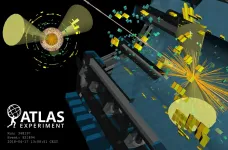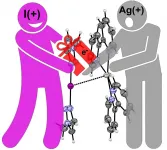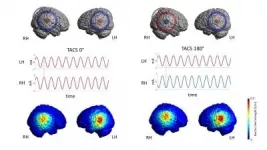(Press-News.org) Cisplatin is one of the most effective chemotherapy agents, used in just under half of pediatric cancer cases. Permanent hearing loss is a common side effect of this medication, but until now, studies have been too small and too varied to accurately characterize this risk. Today in The Lancet Child & Adolescent Health, investigators at Children's Hospital Los Angeles published results of the largest study of cisplatin-induced hearing loss to date. The study establishes the first benchmarks for the prevalence of hearing loss, and reveals that the risk of hearing loss is affected not only by how much drug is given, but by how that drug is delivered--dosing schedules, complementary treatments, and more. These findings will allow oncologists to deliver more information to patients, and to plan treatment schedules to minimize this side effect.
The large number of variables involve means that permanent hearing loss can occur in anywhere from 20-90% of cisplatin-treated patients. This variable range is due to the fact that circumstances differ for many patients (their age, cancer type and other factors). But the new study reveals that another important aspect of chemotherapy can impact a child's risk for hearing loss.
"We found that how we infuse the drug can significantly alter the risk of side effects," says Etan Orgel, MD, MS, who designed and led the study. "Cisplatin has been used to treat cancers in children and adults for more than fifty years, but for the first time, we have insights into how something as simple as adjusting our dosing approach may prevent hearing loss and still maintain effective treatments."
Dr. Orgel and a team of investigators, including CHLA's Diana Moke, MD, MS, collected information from over 1,400 patients treated in hospitals across the United States and Canada. A data pool of this size is no small feat. "Pediatric cancers are rare, so they're hard to study," says Dr. Moke, who treats children with many of the included cancers. "We have gathered data from the largest group ever of cisplatin-treated children and adolescents with a wide variety of cancers," she says. "This information will help us have important conversations with families about the risks they face during therapy."
Overall, the study showed that 44% of pediatric patients treated with cisplatin suffered from moderate to severe hearing loss. But the data showed that not all treatment schedules came with the same risk. Children who received higher doses of the chemotherapy were more likely to experience hearing loss, even when the total amount of cisplatin over the course of the therapy was the same. The group also uncovered another, previously unknown, risk factor for hearing loss: concurrent use of vincristine, a second chemotherapy agent often added to treatment regimens.
The team addressed another barrier to understanding cisplatin-induced hearing loss: variation in interpreting audiology scores. Many international medical centers categorize hearing loss differently, making direct comparisons impossible. To overcome this issue, the team reviewed all of the study data using the same international consensus system for cisplatin-induced hearing loss (developed by the International Society of Pediatric Oncology), enabling investigators to compare hearing loss using more than 2,000 tests from patients treated at 19 different institutions.
Uncovering how real-world variables affect risk of side effects allows oncologists to better serve each child. "Studies like these are a crucial first step in developing a truly individualized approach to each patient," says Bruce Carleton, PharmD, who led the Canadian arm of the study. "Data provided by this study will help oncologists identify patients that might be at higher risk of hearing loss so that protective strategies can be considered."
"We've developed these powerful tools to effectively fight cancer," says Dr. Orgel. "Now we can focus in on how to use these tools in a way that maintains their power but minimizes their footprint."
INFORMATION:
The study was designed and led by Dr. Orgel, the Director of the Medical Supportive Care Service in the Cancer and Blood Disease Institute at Children's Hospital Los Angeles. The first author of the study was Dr. Moke, a physician in the Cancer and Blood Disease Institute at Children's Hospital Los Angeles. The Canadian arm of the study was led by Dr. Carleton, Chief of the Division of Translational Therapeutics in the Department of Pediatrics at the University of British Columbia. Additional authors contributing to the study include: Chunqiao Luo, MS; Joshua Millstein, PhD; Kristin R. Knight, MS; Shahrad R. Rassekh, MD; Beth Brooks, MSc; Colin J.D. Ross, PhD; Michael Wright, MD; Victoria Mena, AuD; Teresa Rushing, PharmD; and Adam J. Esbenshade, MD.
About Children's Hospital Los Angeles
Founded in 1901, Children's Hospital Los Angeles is the highest-ranked children's hospital in California and fifth in the nation on the prestigious U.S. News & World Report Honor Roll of Best Children's Hospitals. U.S. News ranks Children's Hospital Los Angeles in all 10 specialty categories. Clinical care at the hospital is led by physicians who are faculty members of the Keck School of Medicine of USC through an affiliation dating from 1932. The hospital also operates the largest pediatric residency training program at a freestanding children's hospital in the Western United States. The Saban Research Institute of Children's Hospital Los Angeles is home to all basic, translational, clinical and community research conducted at the hospital, allowing proven discoveries to quickly reach patients. Our mission: to create hope and build healthier futures. To learn more, follow us on Facebook, Instagram, LinkedIn, YouTube and Twitter, and visit our blog at CHLA.org/blog.
If you're poor and terminally ill in southern Mexico, there's far less chance you'll get the painkillers you need for palliative care than your cousins in more prosperous regions, particularly those pharmacy-rich areas along Mexico-U.S. border, say UCLA researchers and colleagues who studied opioid dispensing levels across the country.
What's more, the researchers' paper in the journal The Lancet Public Health suggests it's likely that some of the opioids intended for Mexican citizens are ending up in American pockets.
Despite a Mexican government initiative launched in 2015 to improve access to prescription opioids among palliative care patients, the country has seen only a marginal increase in dispensing levels, and inequities in dispensing ...
A novel computer algorithm, or set of rules, that accurately predicts the orbits of planets in the solar system could be adapted to better predict and control the behavior of the plasma that fuels fusion facilities designed to harvest on Earth the fusion energy that powers the sun and stars.
The algorithm, devised by a scientist at the U.S. Department of Energy's (DOE) Princeton Plasma Physics Laboratory (PPPL), applies machine learning, the form of artificial intelligence (AI) that learns from experience, to develop the predictions. "Usually in physics, you make observations, create a theory based on those observations, and then use that theory to predict new observations," said PPPL physicist Hong Qin, author of a paper detailing ...
Monash University researchers have uncovered the barrier to β-cell (beta cell) regeneration that could pave the way for improved treatments for diabetes and diseases that involve organ and tissue damage.
The human body doesn't repair itself very well, with our liver the only organ that can regenerate efficiently. We have limited capacity to regenerate new cells or tissue after birth as the genes involved in development are switched off.
This process happens through DNA methylation, a biological process where chemicals (methyl groups) are written on DNA and modify the way the gene functions. ...
A team of researchers at Lawrence Berkeley National Laboratory (Berkeley Lab) used a quantum computer to successfully simulate an aspect of particle collisions that is typically neglected in high-energy physics experiments, such as those that occur at CERN's Large Hadron Collider.
The quantum algorithm they developed accounts for the complexity of parton showers, which are complicated bursts of particles produced in the collisions that involve particle production and decay processes.
Classical algorithms typically used to model parton showers, such ...
An international research team led by Professor Kari Rissanen of the University of Jyvaskyla (Finland) and Professor Antonio Frontera of the University of Balearic Islands (Spain) has demonstrated that positively charged iodine (termed iodonium) is able to favorably interact with a silver cation (Ag+), overcoming the strong electrostatic repulsion. The research was published online in Chem -journal 8th of February 2021.
It is well known and intuitive that iodide (I-) has a strong affinity for Ag+. For instance, AgI is one of the most insoluble inorganic salts ...
When we listen to speech sounds, the information that enters our left and right ear is not exactly the same. This may be because acoustic information reaches one ear before the other, or because the sound is perceived as louder by one of the ears. Information about speech sounds also reaches different parts of our brain, and the two hemispheres are specialised in processing different types of acoustic information. But how does the brain integrate auditory information from different areas?
To investigate this question, lead researcher Basil Preisig from the University of Zurich collaborated with an international team of scientists. In an earlier study, the team discovered that the brain integrates information about speech sounds by 'balancing' the rhythm of gamma waves across ...
Most countries introduced school closures during the spring of 2020 despite substantial uncertainty regarding the effectiveness in containing SARS-CoV-2. In Sweden, upper-secondary schools moved online while lower-secondary schools remained open. A comparison of parents with children in the final year of lower-secondary and first year of upper-secondary school shows that keeping the former open had limited consequences for the overall transmission of the virus. However, the infection rate doubled among lower-secondary teachers relative to upper-secondary ones. The infection rate among partners of lower-secondary teacher was 30 percent higher than among their upper-secondary counterparts.
On March 18, 2020, Swedish ...
T lymphocytes, or T cells, are an important component of our immune system. They can recognize foreign proteins, so-called antigens, as peptide fragments - for instance, those derived from viruses or cancer cells. In principle, they could, but usually do not, attack our own ('self') proteins. "That is why it is important for the organism to tightly control the activities of T cells," says Dr. Reinhard Obst, head of a research group at the Institute for Immunology at LMU's Biomedical Center that studies the activation of T cells. The project contributed to the Collaborative Research Center 1054 that explores the plasticity of cell fate decisions in the immune system.
When ...
Scientists use many different tests to investigate what happens in the brain in people experiencing stress. It is unclear to what extent the various methods with which subjects are placed under stress are comparable to each other. In a meta-analysis, a biopsychology team from Ruhr-Universität Bochum compared 31 previous studies that had investigated stress using functional magnetic resonance imaging (fMRI). The team worked out which regions of the brain are activated as standard during stress and which stress tests trigger similar activation patterns. They describe the results in the journal Neuroscience and Biobehavioral Reviews, published online on 5 February 2021.
To conduct the work, ...
The move from the ancient system of £sd coinage to 100p to £1 was controversial, considered by some to be a sign of the UK's receding importance on the world stage and even as the beginning of the tumultuous relationship with Europe that ultimately led to Brexit.
But as a result of extensive analysis of a quiet backwater of recent history, Andy argues that the move towards decimalisation had little to do with Europe and in fact was a traditional British compromise.
"It was an event that I remember from my youth, but I found that ...






